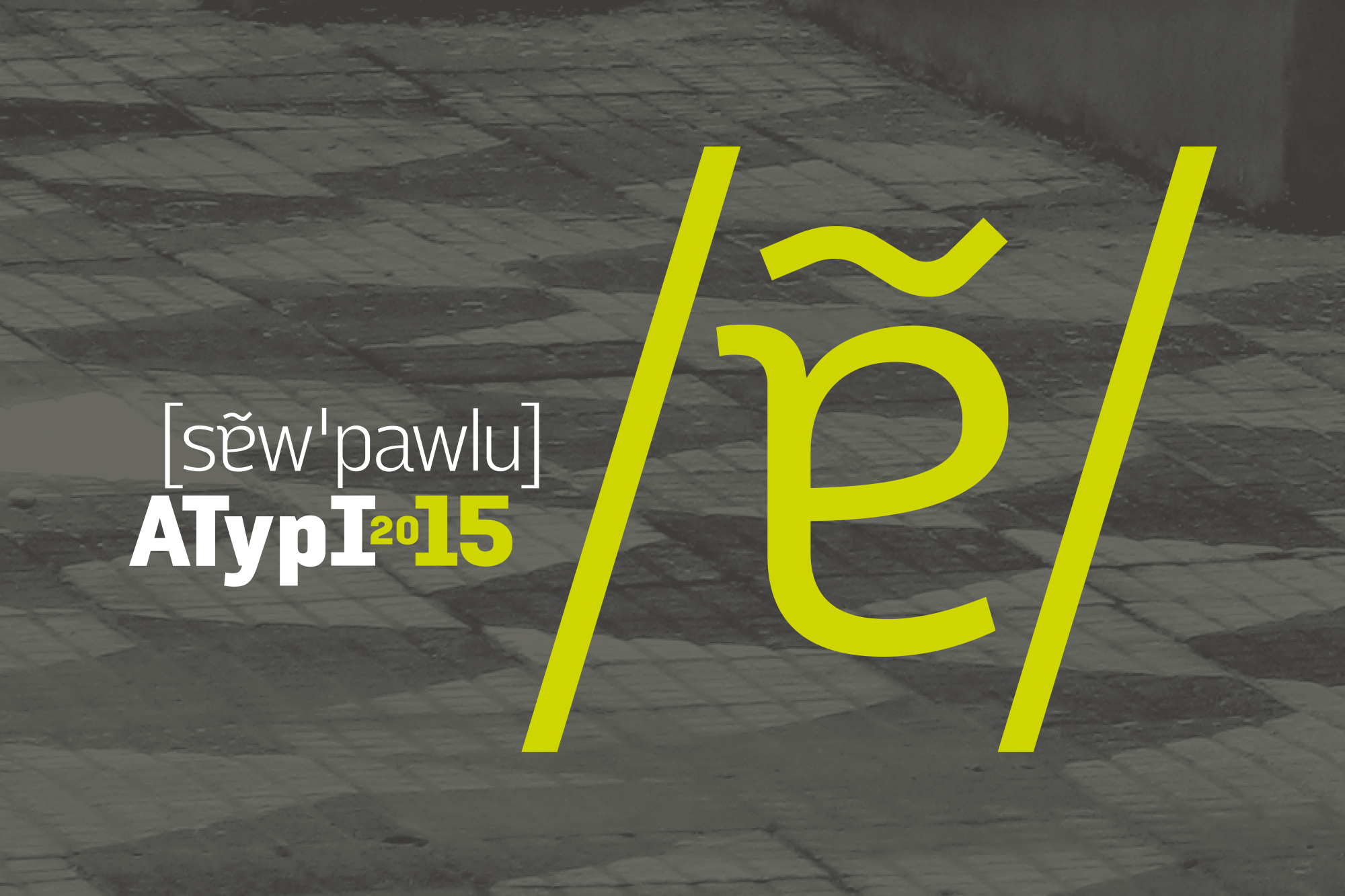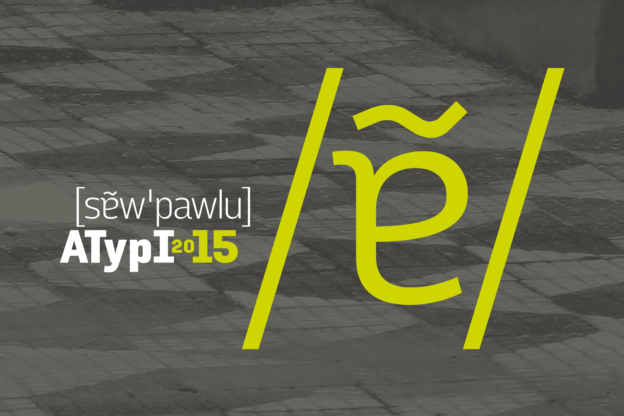The 2015 edition of the annual conference of the Association Typographique Internationale (ATypI) took place in São Paulo, Brazil. Its visual identity was based on the phonetic transcription of the local pronunciation of the name of the host city: /ˌsɐ̃w ˈpawlu/. From this transcription, one symbol was isolated and used as a sort of logo: /ɐ̃/ – both an interesting glyph design-wise and the symbol of a characteristic sound of Portuguese (a nasalised centralised vowel). I think it was a great choice for a type conference in Brazil. What’s more, I liked the typefaces they used in their visual identity, among others Voces (by Ana Paula Megda & Pablo Ugerman) and Brasilica (by Rafael Dietzsch). An extension of the latter, including phonetic symbols, has been announced for 2016 (and I’m quite curious about that).

Despite the cleverness of the concept, not all of its implementations were equally successful. I saw one on YouTube that I was a bit disappointed about: The video recordings of all conference talks – kudos for making them available – had thumbnails showing the names of the speakers and phonetic transcriptions of their names. As I already pointed out on Twitter, many of the transcriptions were inaccurate. In some cases, it was not even clear to me if the transcription was supposed to represent an Anglicised pronunciation or the way speakers would pronounce their names in their native languages. Admittedly, making phonetic transcriptions is not that easy – whether you use the International Phonetic Alphabet (IPA), as they wisely did, or any other system. I don’t know who created the transcriptions in the thumbnails and I don’t know why they ended up being inaccurate: Maybe the transcriber was lacking information or it was a rush job or correct transcriptions were garbled in the design process.
What I want to do here is to provide correct transcriptions of the native pronunciation of the speakers’ names (or at least, I will try to avoid the most egregious mistakes that were made in the original transcriptions). As I said before, making phonetic transcriptions can be difficult: Language varies a lot – across place, time, situation etc. Not everyone agrees on how to describe all this variation; not everyone agrees on how to transcribe it. Trying to pin down the symbol that exactly represents one sound has led to heated debates among linguists more than just once. For that reason, I’d like to invite you to let me know if you disagree with the way I transcribed any of the names.
For all those who do not read IPA transcriptions fluently, there are some audio recordings: Whenever you see a ? symbol next to a name, you can click on it to listen to the speaker’s own pronunciation of their name. Most speakers say something along the lines of ‘Hi, my name is […], I come from […] and my mother tongue is […]’ – all that in (one of) their native language(s). I hope to add more recordings in the future, but this may take some time. Similarly, some transcriptions require a bit of research, so the list will not be complete from the outset, but be filled over time. Anyway, here is the list:
